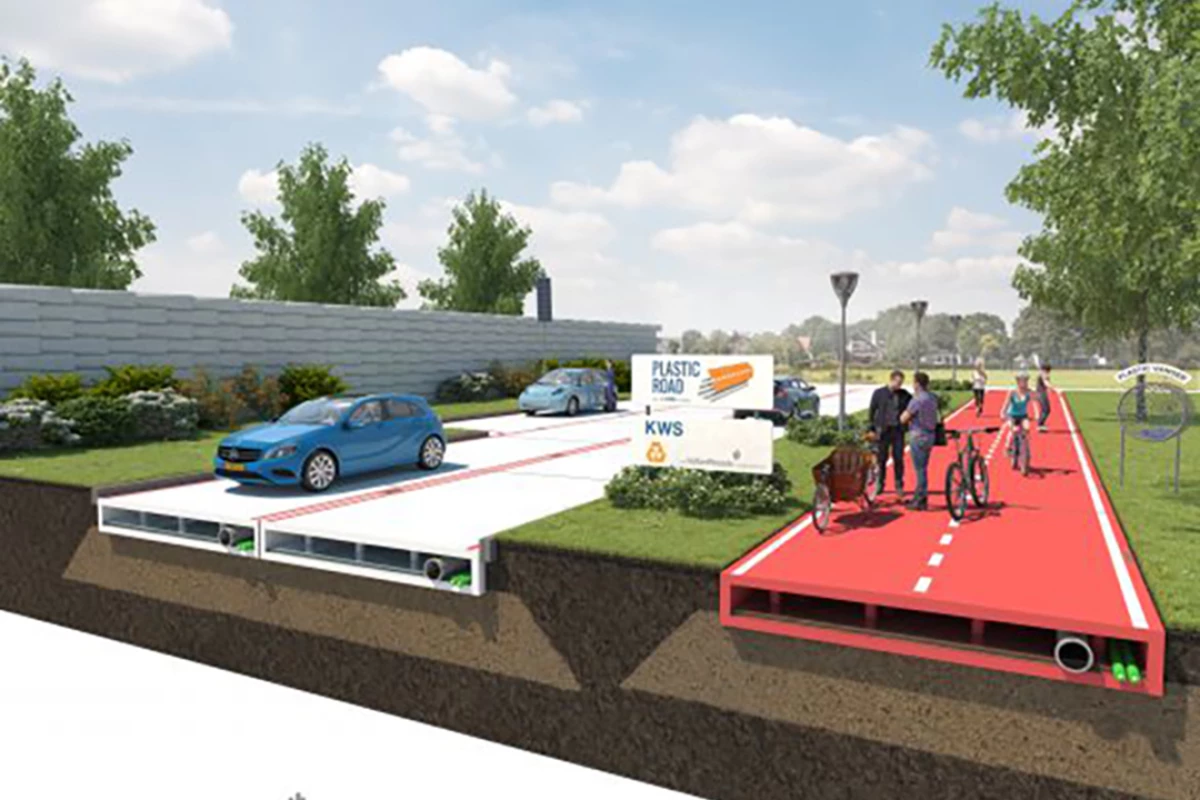Asphalt covers more than 94 percent of the paved streets in the US, but have we gone down the wrong road with our choice of building material? Dutch firm VolkerWessels thinks so and has unveiled plans for roads crafted from recycled plastic, claiming the approach would significantly cut construction and maintenance time, as well as extend their expected lifespan.
VolkerWessels details a long list of potential benefits of pure plastic roads. First up, it is claimed the road could better withstand extreme temperatures, as low as -40° C (-40° F) and as high as 80° C (176° F). It would also be more resistant to corrosion and last three times as long as asphalt, while minimizing the need for maintenance (otherwise known as pesky roadworks and detours).
Because sections of the road could be prefabricated and installed on sand in a single piece, the company claims construction time for roads would be cut from months down to weeks. The material would also be lighter and allow better control over factors like road stiffness and water drainage, while a hollow space within could be used for all sorts of things. Some of ideas offered up by VolkerWessels include running cables and pipes and housing traffic loop sensors.
Further to the obvious environmental advantages in repurposing used plastic trash to build roads, the approach would lessen reliance on carbon-intensive asphalt production. And the company says that the more sustainable material would also better lend itself to forward-thinking infrastructure ideas like power generation and heated roads to stave off ice and snow.
VolkerWessels' PlasticRoad is only a concept at this stage, but the company is looking for partners to help develop a prototype to test things like how it performs in the wet. The Guardian reports that the Dutch city of Rotterdam is already entertaining the idea of carrying out a trial.
Source: VolkerWessels






